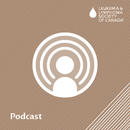Resource Library
Showing 81 to 90 of 333 results
Jacqueline Galica an oncology-certified Registered Nurse with over 20 years of experience in oncology. She is currently an Assistant Professor at the Queen’s University School of Nursing, where her research program focuses on the psychosocial concerns – including fears of cancer recurrence - of post-treatment cancer survivors.
Being affected by cancer at the beginning of the adult life often forces to put various projects on hold. The impacts of the disease are numerous, and they sometimes affect the identity of the person. Once the remission is pronounced, how is it possible to go back to a normal life?
A love life can be positively or negatively affected if one of the partners is diagnosed with cancer. Meeting a new partner following the disease could also cause several concerns. How to discuss changes in the relationship with your partner? How to deal with possible sexuality and fertility problems? Should someone tell a new date that they had cancer? If…
Originally thought to be a locked muscle from exercise, Michelle Burleigh shockingly discovered that she had a rare form of Acute Leukemia. In this podcast, Michelle recounts her experience being diagnosed with APL, revealing how her sudden diagnosis taught her about finding perspective, slowing down, and making the most of each day despite living with…
After being diagnosed with leukemia at 21 years old, Shae-Lynn Way shares her experience with shifting her mindset while preparing for a second stem cell transplant after her leukemia returned.
In this episode of our AYA podcast series, Sukant Sharma shares his experience balancing work, side effects, and his personal life after being diagnosed with Acute Lymphoblastic Leukemia.
Alyssa Brandone was 11 years old when she was diagnosed with Acute Myeloid Leukemia. In this podcast episode, Alyssa shares her experience with a pediatric blood cancer and how the support of her family and friends helped her overcome the challenges of integrating back into “normal” life after treatment.
Rachel Sutherland is an Indigenous Patient Navigator at the London Regional Cancer Program and Dr. Samantha Boshart is a Family Physician who is also the Regional Indigenous Cancer Lead for the Southwest Regional Cancer Program. In this podcast, both experts discuss the unique challenges experienced by the Indigenous Community in Cancer Care and the efforts…
What started as a normal trip to the cottage ended up leading Tom to take a trip to the hospital- where he was diagnosed with myelodysplastic syndrome. Tom shares his blood cancer experience and how learning about his diagnosis, staying positive, and staying active are what helped him through the difficult times of treatment.
Mayra Husic shares her experience with Follicular Lymphoma.
